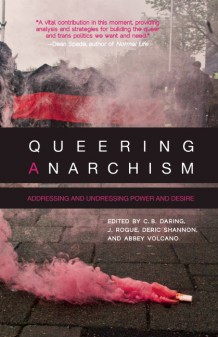Several factors played into our collective decision not to run a print issue of Perspectives on Anarchist Theory for the current year. We sincerely thank all inquiries and submissions sent for what was hoped to be an issue on Play. A call for submissions for a Beyond The Crisis print issue of Perspectives (2018) is here.
This is an article written by two Wobblies in response to our call for Play essays. These organizers bridge the gap between play and the practice of organizing skills via educational skits and fun activities led by the New Junior Wobblies, the young members of the Industrial Workers of the World (IWW).
The IWW globe logo holds three stars representing Education, Organization and Emancipation. This article looks at Recreation – a fourth star – from challenging uneven relations of power, to making joy central to organizing against capitalism, regardless of age.
Shortly after a wave of government repression and internal splits nearly destroyed the Industrial Workers of the World (IWW) as a functioning labor organization, a group of Wobblies felt the immediate need to find new ways to raise the next generation of revolutionary unionists. As a part of solidarity support for striking IWW coal miners in Colorado, children of union members were invited to join an IWW organization of their own. These Wobbly kids formed “locals” to organize support for their striking parents, and alongside them, develop a rudimentary understanding of the world and how they might soon be a part of organizing to change it. To the IWW tripartite motto, “Education, Organization, Emancipation” they added “Recreation,” and in 1927, the Junior Wobblies Union was born.

#IAS
Guerrillas of Desire Book Launch, with Kevin Van Meter
Powell’s on Hawthorne
August 10th at 7:30pm
3723 SE Hawthorne Blvd., Portland, Or
The Institute for Anarchist Studies, in conjunction with our comrades at AK Press, have proudly published Guerrillas of Desire: Notes on Everyday Resistance and Organizing to Make a Revolution Possible, by Kevin Van Meter. Join Kevin and friends and comrades as he launches his book at Powell’s Books, on Hawthorne, in Portland, Oregon.
What is Anarchism?
 Lara Messersmith-Glavin and Kristian Williams, of the Institute for Anarchist Studies and Perspectives on Anarchist Theory journal collective, and Ayme Ueda, of the Black Rose Anarchist Federation / Federación Anarquista Rosa Negra, recently appeared on X-RAY FM in Portland, Oregon. The show is called Group Therapy, hosted by Natalie Sept. This episode features an hour discussion of topics including what anarchism is, what anarchists want and do, anarchist critiques of the world, and challenges anarchists face. Listen in below!
Lara Messersmith-Glavin and Kristian Williams, of the Institute for Anarchist Studies and Perspectives on Anarchist Theory journal collective, and Ayme Ueda, of the Black Rose Anarchist Federation / Federación Anarquista Rosa Negra, recently appeared on X-RAY FM in Portland, Oregon. The show is called Group Therapy, hosted by Natalie Sept. This episode features an hour discussion of topics including what anarchism is, what anarchists want and do, anarchist critiques of the world, and challenges anarchists face. Listen in below!
Anarchist Theory & Action Camp
The Institute for Advanced Troublemaking Anarchist Summer Camp will be held August 11th – 18th, 2017 in Worcester, MA.
Maia Ramnath, Institute for Anarchist Studies (IAS) and Perspectives on Anarchist Theory journal collective member; Cindy Milstein and Todd May, former IAS board members; and Hillary Lazar, IAS writing grant recipient, and author of the essay “Until All Are Free: Black Feminism, Anarchism, and Interlocking Oppression” in the current issue of Perspectives, are among many people presenting at this summer’s Institute for Advanced Troublemaking anarchist summer camp in the Northeast US. The summer camp is a week-long theory and action camp to be held in Worcester, MA August 11th – 18th, 2017.
Guerrillas of Desire Now Available!
Hot off the press: Kevin Van Meter’s GUERRILLAS OF DESIRE: NOTES ON EVERYDAY RESISTANCE AND ORGANIZING TO MAKE A REVOLUTION POSSIBLE, published by the Institute for Anarchist Studies, in conjunction with AK Press, has just arrived from the printer! Get your copy now for 25% off list price here!

What Happened in Portland on May Day?
This May Day in Portland, Oregon about 1,500 people rallied and marched against capitalism, racism, and colonialism, including immigrant families, undocumented folks, people with disabilities, and working families with kids. It was International Workers Day, which commemorates the Haymarket affair, which took place in Chicago, … Read more
Guerrillas of Desire: New IAS Book on Everyday Resistance and Organizing Available for Preorder!

Silvia Federici says it is “beautifully written” while illustrating “the power of the refusal of work of those capitalism has subjugated.” George Caffentzis believes it is an “important exploration of the revolutionary possibilities of our time.” Kevin Van Meter’s Guerrillas of Desire: Notes on Everyday Resistance and Organizing to Make a Revolution Possible is the latest Institute of Anarchist Studies book to be published in concert with AK Press.
Perspectives available in Canada!
The current anarcha-feminisms issue of Perspectives on Anarchist Theory (n. 29), and all back issues, including:

Justice, Strategy, Care, Movements, and Climate, are now available in Canada, from Kersplebedeb Leftwing Books!
Angels with Dirty Faces wins the Oregon Book Creative Nonfiction Award!
Walidah Imarisha’s Angels with Dirty Faces, co-published by the Institute for Anarchist Studies and AK Press, won the Oregon Book Creative Nonfiction Award! Congratulations Walidah! Angels with Dirty Faces is available from AK Press here!
Free Unicorns: A Review of Queering Anarchism: Addressing and Undressing Power and Desire, edited by C.B. Daring, J. Rogue, Deric Shannon, Abbey Volcano, by Kristian Williams
 This book review appears in the current issue of Perspectives on Anarchist Theory (N. 29) available from AK Press here!
This book review appears in the current issue of Perspectives on Anarchist Theory (N. 29) available from AK Press here!
Queering Anarchism. The title suggests a process, something in motion, developing, unfolding, undefined, unsettled. Indeterminacy is part of the point of the subversion of categories, an opening of possibilities, simultaneously emphasizing and easing difference. What was once hidden becomes apparent; what was once obvious becomes absurd. Both the anarchic and the queer challenge the status quo. Both expand our sense of the possible, enlarge our idea of freedom. What happens when these two mercurial concepts come into contact?
In making the attempt, Queering Anarchism accomplishes something remarkable, providing a good, quick orientation to anarchism and a short introduction to queer politics and queer theory. And by relating the two, it enacts a kind of intervention into each. The book’s twenty-one chapters show that queer politics needs an analysis of class and power, and that the anarchist critique of capitalism and the state has much to gain by incorporating questions of gender and sexuality. The contributors consider the multiple ways that power relations shape our sex lives, our gender expressions, our family arrangements, our sense of self and belonging, and even our desires, fantasies, and entertainment. Conversely, they also explore the ways that freedom might change those things and moreover, how changing them might in turn transform our understanding of freedom. As Jerimarie Liesegang writes in “Tyranny of the State and Trans Liberation”:
Whereas anarchists and anarchist theory need to look at struggle on the conceptual level that queer theory provides, queer theory needs to be coupled with anarchism’s critique of structural domination, such as the state and capitalism. (96)
If that sounds a bit like a dare, it is a dare worth taking.


